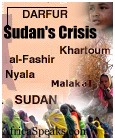President Obama's Opening Statement at the Fifth Summit of the Americas
- 04/17/09
Text
Good evening. I am honored to join you here today, and I want to thank Prime Minister Manning, the people of Trinidad and Tobago for their generosity in hosting the Fifth Summit of the Americas. And I want to extend my greetings to all the heads of state, many of who I am meeting for the first time. All of us are extraordinarily excited to have this opportunity to visit this wonderful country -- and as somebody who grew up on an island, I can tell you I feel right at home. (Applause.)
It's appropriate and important that we hold this summit in the Caribbean. The energy, the dynamism, the diversity of the Caribbean people inspires us all, and are such an important part of what we share in common as a hemisphere.
I think everybody recognizes that we come together at a critical moment for the people of the Americas. Our well-being has been set back by a historic economic crisis. Our safety is endangered by a broad range of threats. But this peril can be eclipsed by the promise of a new prosperity and personal security and the protection of liberty and justice for all the people of our hemisphere. That's the future that we can build together, but only if we move forward with a new sense of partnership.
All of us must now renew the common stake that we have in one another. I know that promises of partnership have gone unfulfilled in the past, and that trust has to be earned over time. While the United States has done much to promote peace and prosperity in the hemisphere, we have at times been disengaged, and at times we sought to dictate our terms. But I pledge to you that we seek an equal partnership. (Applause.) There is no senior partner and junior partner in our relations; there is simply engagement based on mutual respect and common interests and shared values. So I'm here to launch a new chapter of engagement that will be sustained throughout my administration. (Applause.)
To move forward, we cannot let ourselves be prisoners of past disagreements. I am very grateful that President Ortega -- (applause) -- I'm grateful that President Ortega did not blame me for things that happened when I was three months old. (Laughter.) Too often, an opportunity to build a fresh partnership of the Americas has been undermined by stale debates. And we've heard all these arguments before, these debates that would have us make a false choice between rigid, state-run economies or unbridled and unregulated capitalism; between blame for right-wing paramilitaries or left-wing insurgents; between sticking to inflexible policies with regard to Cuba or denying the full human rights that are owed to the Cuban people.
I didn't come here to debate the past -- I came here to deal with the future. (Applause.) I believe, as some of our previous speakers have stated, that we must learn from history, but we can't be trapped by it. As neighbors, we have a responsibility to each other and to our citizens. And by working together, we can take important steps forward to advance prosperity and security and liberty. That is the 21st century agenda that we come together to enact. That's the new direction that we can pursue.
Before we move forward for our shared discussions over this weekend, I'd like to put forward several areas where the United States is committed already to strengthening collective action on behalf of our shared goals.
First, we must come together on behalf of our common prosperity. That's what we've already begun to do. Our unprecedented actions to stimulate growth and restart the flow of credit will help create jobs and prosperity within our borders and within yours. We joined with our G20 partners to set aside over a trillion dollars for countries going through difficult times, recognizing that we have to provide assistance to those countries that are most vulnerable. We will work with you to ensure that the Inter-American Development Bank can take the necessary steps to increase its current levels of lending and to carefully study the needs for recapitalization in the future. And we recognize that we have a special responsibility, as one of the world's financial centers, to work with partners around the globe to reform a failed regulatory system -- so that we can prevent the kinds of financial abuses that led to this current crisis from ever happening again, and achieve an economic expansion not just in the United States but all across the hemisphere that is built not on bubbles, but on sustainable economic growth.
We're also committed to combating inequality and creating prosperity from the bottom up. This is something that I've spoken about in the United States, and it's something that I believe applies across the region. I've asked Congress for $448 million in immediate assistance for those who have been hit hardest by the crisis beyond our borders. And today, I'm pleased to announce a new Microfinance Growth Fund for the hemisphere that can restart the lending that can power businesses and entrepreneurs in each and every country that's represented here. This is not charity. (Applause.) Let me be clear: This is not charity. Together, we can create a broader foundation of prosperity that builds new markets and powers new growth for all peoples in the hemisphere, because our economies are intertwined.
Next, we can strengthen the foundation of our prosperity and our security and our environment through a new partnership on energy. Our hemisphere is blessed with bountiful resources, and we are all endangered by climate change. Now we must come together to find new ways to produce and use energy so that we can create jobs and protect our planet.
So today, I'm proposing the creation of a new Energy and Climate Partnership of the Americas that can forge progress to a more secure and sustainable future. It's a partnership that will harness the vision and determination of countries like Mexico and Brazil that have already done outstanding work in this area to promote renewable energy and reduce greenhouse gas emissions. Each country will bring its own unique resources and needs, so we will ensure that each country can maximize its strengths as we promote efficiency and improve our infrastructure, share technologies, support investments in renewable sources of energy. And in doing so, we can create the jobs of the future, lower greenhouse gas emissions, and make this hemisphere a model for cooperation.
The dangers of climate change are part of a broad range of threats to our citizens, so the third area where we must work together is to advance our common security.
Today, too many people in the Americas live in fear. We must not tolerate violence and insecurity, no matter where it comes from. Children must be safe to play in the street, and families should never face the pain of a kidnapping. Policemen must be more powerful than kingpins, and judges must advance the rule of law. Illegal guns must not flow freely into criminal hands, and illegal drugs must not destroy lives and distort our economy.
Yesterday, President Calderón of Mexico and I renewed our commitment to combat the dangers posed by drug cartels. Today, I want to announce a new initiative to invest $30 million to strengthen cooperation on security in the Caribbean. And I have directed key members of my Cabinet to build and sustain relations with their counterparts in the hemisphere to constantly adjust our tactics, to build upon best practices, and develop new modes of cooperation -- because the United States is a friend of every nation and person who seeks a future of security and dignity.
And let me add that I recognize that the problem will not simply be solved by law enforcement if we're not also dealing with our responsibilities in the United States. And that's why we will take aggressive action to reduce our demand for drugs, and to stop the flow of guns and bulk cash south across our borders. (Applause.) And that's why I'm making it a priority to ratify the Illicit Trafficking in Firearms Convention as another tool that we can use to prevent this from happening. And I also am mindful of the statement that's been made earlier, that unless we provide opportunity for an education and for jobs and a career for the young people in the region, then too many will end up being attracted to the drug trade. And so we cannot separate out dealing with the drug issue on the interdiction side and the law enforcement side from the need for critical development in our communities.
Finally, we know that true security only comes with liberty and justice. Those are bedrock values of the Inter-American charter. Generations of our people have worked and fought and sacrificed for them. And it is our responsibility to advance them in our time.
So together, we have to stand up against any force that separates any of our people from that story of liberty -- whether it's crushing poverty or corrosive corruption; social exclusion or persistent racism or discrimination. Here in this room, and on this dais, we see the diversity of the Americas. Every one of our nations has a right to follow its own path. But we all have a responsibility to see that the people of the Americans [sic] have the ability to pursue their own dreams in democratic societies.
There's been several remarks directed at the issue of the relationship between the United States and Cuba, so let me address this. The United States seeks a new beginning with Cuba. I know that there is a longer -- (applause) -- I know there's a longer journey that must be traveled to overcome decades of mistrust, but there are critical steps we can take toward a new day. I've already changed a Cuba policy that I believe has failed to advance liberty or opportunity for the Cuban people. We will now allow Cuban Americans to visit the islands whenever they choose and provide resources to their families -- the same way that so many people in my country send money back to their families in your countries to pay for everyday needs.
Over the past two years, I've indicated, and I repeat today, that I'm prepared to have my administration engage with the Cuban government on a wide range of issues -- from drugs, migration, and economic issues, to human rights, free speech, and democratic reform. Now, let me be clear, I'm not interested in talking just for the sake of talking. But I do believe that we can move U.S.-Cuban relations in a new direction.
As has already been noted, and I think my presence here indicates, the United States has changed over time. (Applause.) It has not always been easy, but it has changed. And so I think it's important to remind my fellow leaders that it's not just the United States that has to change. All of us have responsibilities to look towards the future. (Applause.)
I think it's important to recognize, given historic suspicions, that the United States' policy should not be interference in other countries, but that also means that we can't blame the United States for every problem that arises in the hemisphere. That's part of the bargain. (Applause.) That's part of the change that has to take place. That's the old way, and we need a new way.
The United States will be willing to acknowledge past errors where those errors have been made. We will be partners in helping to alleviate poverty. But the American people have to get some positive reinforcement if they are to be engaged in the efforts to lift other countries out of the poverty that they're experiencing.
Every nation has been on its own journey. Here in Trinidad and Tobago, we must respect those differences while celebrating those things that we share in common. Our nations were all colonized by empires and achieved our own liberation. Our people reflect the extraordinary diversity of human beings, and our shared values reflect a common humanity -- the universal desire to leave our children a world that is more prosperous and peaceful than the one that we inherited.
So as we gather here, let us remember that our success must be measured by the ability of people to live their dreams. That's a goal that cannot be encompassed with any one policy or communiqué. It's not a matter of abstractions or ideological debates. It's a question of whether or not we are in a concrete way making the lives of our citizens better. It's reflected in the hopes of our children, in the strength of our democratic institutions, and our faith in the future.
It will take time. Nothing is going to happen overnight. But I pledge to you that the United States will be there as a friend and a partner, because our futures are inextricably bound to the future of the people of the entire hemisphere. And we are committed to shaping that future through engagement that is strong and sustained, that is meaningful, that is successful, and that is based on mutual respect and equality.
Thank you very much. (Applause.)
|
| 






|